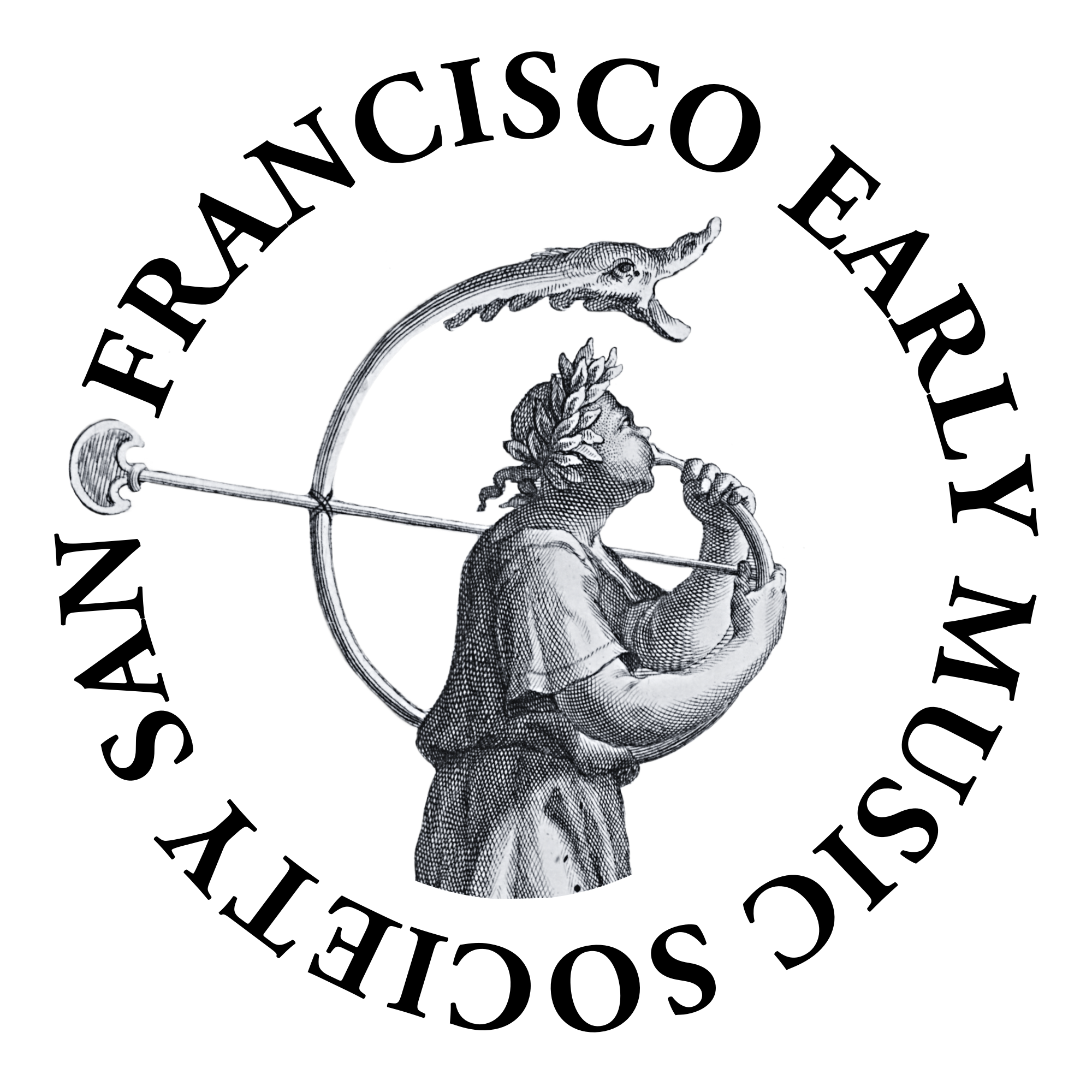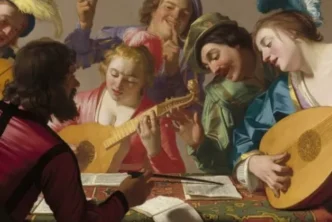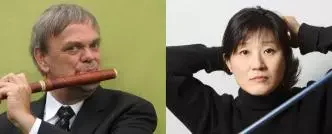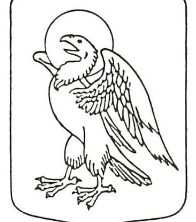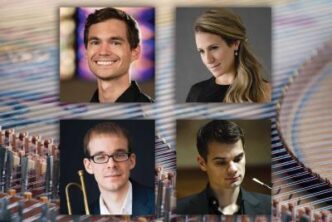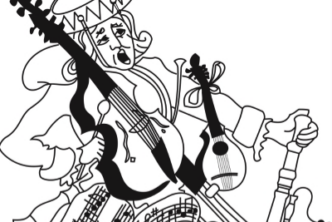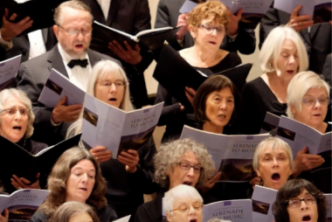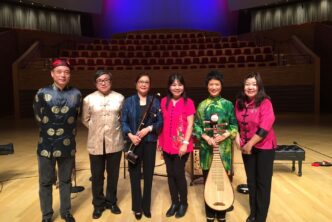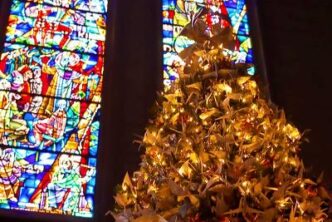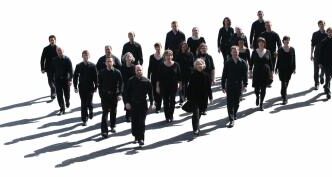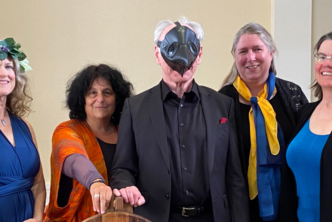Monday, February 12
American Bach Soloists
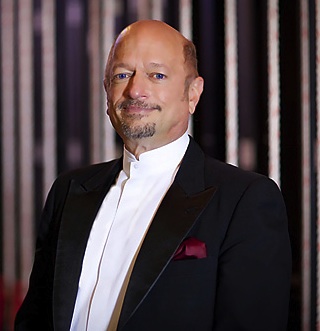 Free Public Master Class with Jeffrey Thomas, conductor. Experience the magic! ABS will present three Master Classes at the San Francisco Conservatory of Music. Witness the artistic transformations that make Master Classes so tremendously exciting, as performers and ABS musicians share their knowledge and insights. These events are free and open to the public.
Free Public Master Class with Jeffrey Thomas, conductor. Experience the magic! ABS will present three Master Classes at the San Francisco Conservatory of Music. Witness the artistic transformations that make Master Classes so tremendously exciting, as performers and ABS musicians share their knowledge and insights. These events are free and open to the public.
7:30 PM
San Francisco Conservatory of Music
50 Oak Street, San Francisco
Free
info@americanbach.org, 415-621-7900
Prescott Lectures
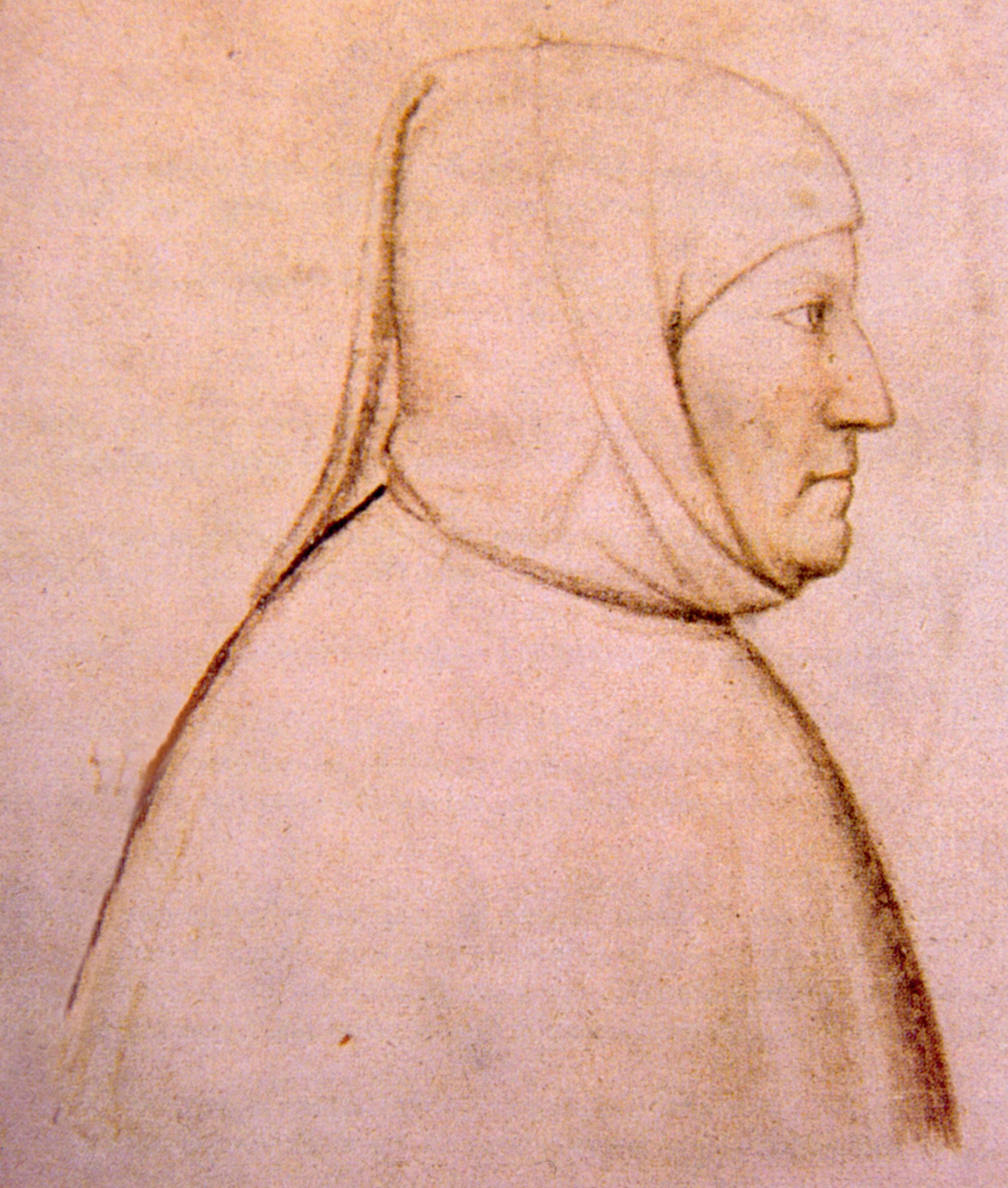 “From Madrigal to Opera: Music and Poetry in 16th-century Italy” Musicologist Dr. John Prescott and literary scholar Dr. Nicholas Jones will present a week-long series of talks on the evolution of the Italian madrigal. The madrigal was to Monteverdi what the symphony was to Haydn and the string quartet was to Beethoven: a form of endless inventiveness and a crucible of experimentation. Inexorably bound to the vital tradition of Petrarchan lyric poetry, the madrigal was where Italian composers developed their craft and pushed the boundaries of music as an expressive and dramatic art. Italian poets wrote new poems to be set to music, and musicians composed new arrangements of these poems, vying with each other for courtly patronage and profit, as literally thousands of madrigals circulated around the courts of Italy and Europe in manuscripts and printed music. Growing increasingly dramatic and expressive through the 16th century, the vocal madrigal evolved from its core as a short piece for five unaccompanied singers, becoming longer and more complicated, adding instruments, and, by the early 17th century, morphing into what we now know as the first operas, such as Claudio Monteverdi’s L’Orfeo. No knowledge of Italian or of madrigal music is expected. Featured composers will include three of the greats from the 16th century: Luca Marenzio, Carlo Gesualdo, and of course Monteverdi, whose operas will conclude the week. Featured poets will include Petrarch, the 14th-century giant whose poetry was still avidly read and imitated in the 16th century; and Giovanni Battista Guarini, Monteverdi’s favorite poet and the source of more than 1,300 vocal madrigals by hundreds of composers. Read more . . .
“From Madrigal to Opera: Music and Poetry in 16th-century Italy” Musicologist Dr. John Prescott and literary scholar Dr. Nicholas Jones will present a week-long series of talks on the evolution of the Italian madrigal. The madrigal was to Monteverdi what the symphony was to Haydn and the string quartet was to Beethoven: a form of endless inventiveness and a crucible of experimentation. Inexorably bound to the vital tradition of Petrarchan lyric poetry, the madrigal was where Italian composers developed their craft and pushed the boundaries of music as an expressive and dramatic art. Italian poets wrote new poems to be set to music, and musicians composed new arrangements of these poems, vying with each other for courtly patronage and profit, as literally thousands of madrigals circulated around the courts of Italy and Europe in manuscripts and printed music. Growing increasingly dramatic and expressive through the 16th century, the vocal madrigal evolved from its core as a short piece for five unaccompanied singers, becoming longer and more complicated, adding instruments, and, by the early 17th century, morphing into what we now know as the first operas, such as Claudio Monteverdi’s L’Orfeo. No knowledge of Italian or of madrigal music is expected. Featured composers will include three of the greats from the 16th century: Luca Marenzio, Carlo Gesualdo, and of course Monteverdi, whose operas will conclude the week. Featured poets will include Petrarch, the 14th-century giant whose poetry was still avidly read and imitated in the 16th century; and Giovanni Battista Guarini, Monteverdi’s favorite poet and the source of more than 1,300 vocal madrigals by hundreds of composers. Read more . . .
Day 1’s lecture will focus on Petrarch: the origins and forms of the poetic and musical madrigal.
9:30 AM to Noon
St. Mary Magdalen Church
2005 Berryman St., Berkeley
$30/$25 per session, $125/$110 full week
suzannesiebert@gmail.com
Tuesday, February 13
Prescott Lectures
 “From Madrigal to Opera: Music and Poetry in 16th-century Italy” Musicologist Dr. John Prescott and literary scholar Dr. Nicholas Jones will present a week-long series of talks on the evolution of the Italian madrigal. The madrigal was to Monteverdi what the symphony was to Haydn and the string quartet was to Beethoven: a form of endless inventiveness and a crucible of experimentation. Inexorably bound to the vital tradition of Petrarchan lyric poetry, the madrigal was where Italian composers developed their craft and pushed the boundaries of music as an expressive and dramatic art. Italian poets wrote new poems to be set to music, and musicians composed new arrangements of these poems, vying with each other for courtly patronage and profit, as literally thousands of madrigals circulated around the courts of Italy and Europe in manuscripts and printed music. Growing increasingly dramatic and expressive through the 16th century, the vocal madrigal evolved from its core as a short piece for five unaccompanied singers, becoming longer and more complicated, adding instruments, and, by the early 17th century, morphing into what we now know as the first operas, such as Claudio Monteverdi’s L’Orfeo. No knowledge of Italian or of madrigal music is expected. Featured composers will include three of the greats from the 16th century: Luca Marenzio, Carlo Gesualdo, and of course Monteverdi, whose operas will conclude the week. Featured poets will include Petrarch, the 14th-century giant whose poetry was still avidly read and imitated in the 16th century; and Giovanni Battista Guarini, Monteverdi’s favorite poet and the source of more than 1,300 vocal madrigals by hundreds of composers. Read more . . .
“From Madrigal to Opera: Music and Poetry in 16th-century Italy” Musicologist Dr. John Prescott and literary scholar Dr. Nicholas Jones will present a week-long series of talks on the evolution of the Italian madrigal. The madrigal was to Monteverdi what the symphony was to Haydn and the string quartet was to Beethoven: a form of endless inventiveness and a crucible of experimentation. Inexorably bound to the vital tradition of Petrarchan lyric poetry, the madrigal was where Italian composers developed their craft and pushed the boundaries of music as an expressive and dramatic art. Italian poets wrote new poems to be set to music, and musicians composed new arrangements of these poems, vying with each other for courtly patronage and profit, as literally thousands of madrigals circulated around the courts of Italy and Europe in manuscripts and printed music. Growing increasingly dramatic and expressive through the 16th century, the vocal madrigal evolved from its core as a short piece for five unaccompanied singers, becoming longer and more complicated, adding instruments, and, by the early 17th century, morphing into what we now know as the first operas, such as Claudio Monteverdi’s L’Orfeo. No knowledge of Italian or of madrigal music is expected. Featured composers will include three of the greats from the 16th century: Luca Marenzio, Carlo Gesualdo, and of course Monteverdi, whose operas will conclude the week. Featured poets will include Petrarch, the 14th-century giant whose poetry was still avidly read and imitated in the 16th century; and Giovanni Battista Guarini, Monteverdi’s favorite poet and the source of more than 1,300 vocal madrigals by hundreds of composers. Read more . . .
Day 2’s lecture will consider the Princes and patrons; Marenzio and the social world of the madrigal.
9:30 AM to Noon
St. Mary Magdalen Church
2005 Berryman St., Berkeley
$30/$25 per session, $125/$110 full week
suzannesiebert@gmail.com
Wednesday, February 14
Mid-Peninsula Recorder Orchestra
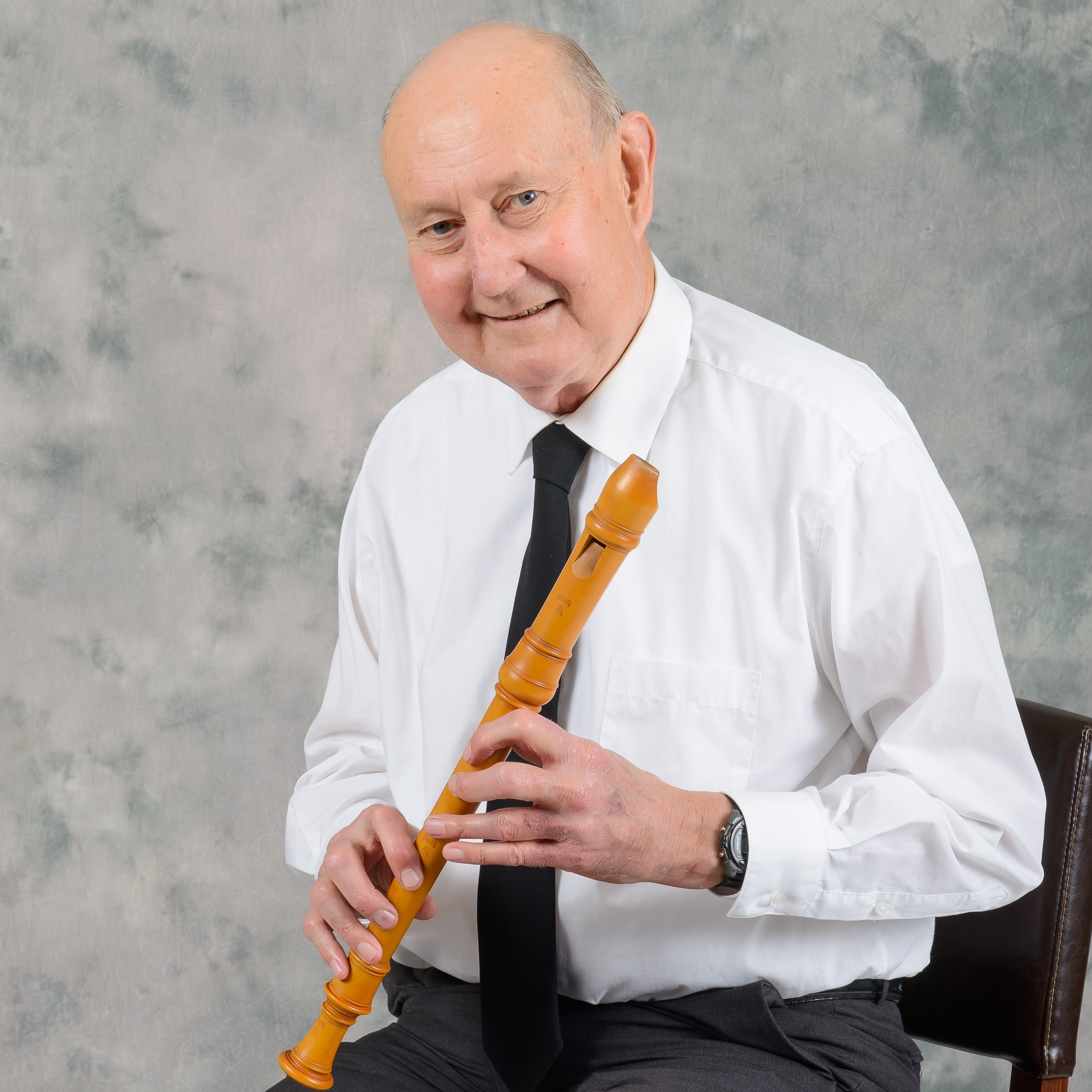 Regular meeting, for players of recorder, early winds or early strings. Bring your instrument(s) and music stand.
Regular meeting, for players of recorder, early winds or early strings. Bring your instrument(s) and music stand.
7:30–9:30 PM
Trinity Church, Angus Hall
330 Ravenswood Ave. (at Laurel), Menlo Park
650-591-3648 or mpro-online.org
Prescott Lectures
 “From Madrigal to Opera: Music and Poetry in 16th-century Italy” Musicologist Dr. John Prescott and literary scholar Dr. Nicholas Jones will present a week-long series of talks on the evolution of the Italian madrigal. The madrigal was to Monteverdi what the symphony was to Haydn and the string quartet was to Beethoven: a form of endless inventiveness and a crucible of experimentation. Inexorably bound to the vital tradition of Petrarchan lyric poetry, the madrigal was where Italian composers developed their craft and pushed the boundaries of music as an expressive and dramatic art. Italian poets wrote new poems to be set to music, and musicians composed new arrangements of these poems, vying with each other for courtly patronage and profit, as literally thousands of madrigals circulated around the courts of Italy and Europe in manuscripts and printed music. Growing increasingly dramatic and expressive through the 16th century, the vocal madrigal evolved from its core as a short piece for five unaccompanied singers, becoming longer and more complicated, adding instruments, and, by the early 17th century, morphing into what we now know as the first operas, such as Claudio Monteverdi’s L’Orfeo. No knowledge of Italian or of madrigal music is expected. Featured composers will include three of the greats from the 16th century: Luca Marenzio, Carlo Gesualdo, and of course Monteverdi, whose operas will conclude the week. Featured poets will include Petrarch, the 14th-century giant whose poetry was still avidly read and imitated in the 16th century; and Giovanni Battista Guarini, Monteverdi’s favorite poet and the source of more than 1,300 vocal madrigals by hundreds of composers. Read more . . .
“From Madrigal to Opera: Music and Poetry in 16th-century Italy” Musicologist Dr. John Prescott and literary scholar Dr. Nicholas Jones will present a week-long series of talks on the evolution of the Italian madrigal. The madrigal was to Monteverdi what the symphony was to Haydn and the string quartet was to Beethoven: a form of endless inventiveness and a crucible of experimentation. Inexorably bound to the vital tradition of Petrarchan lyric poetry, the madrigal was where Italian composers developed their craft and pushed the boundaries of music as an expressive and dramatic art. Italian poets wrote new poems to be set to music, and musicians composed new arrangements of these poems, vying with each other for courtly patronage and profit, as literally thousands of madrigals circulated around the courts of Italy and Europe in manuscripts and printed music. Growing increasingly dramatic and expressive through the 16th century, the vocal madrigal evolved from its core as a short piece for five unaccompanied singers, becoming longer and more complicated, adding instruments, and, by the early 17th century, morphing into what we now know as the first operas, such as Claudio Monteverdi’s L’Orfeo. No knowledge of Italian or of madrigal music is expected. Featured composers will include three of the greats from the 16th century: Luca Marenzio, Carlo Gesualdo, and of course Monteverdi, whose operas will conclude the week. Featured poets will include Petrarch, the 14th-century giant whose poetry was still avidly read and imitated in the 16th century; and Giovanni Battista Guarini, Monteverdi’s favorite poet and the source of more than 1,300 vocal madrigals by hundreds of composers. Read more . . .
Day 3’s lecture will explore Monteverdi and Guarini: the dynamic collaboration of poem and music.
9:30 AM to Noon
St. Mary Magdalen Church
2005 Berryman St., Berkeley
$30/$25 per session, $125/$110 full week
suzannesiebert@gmail.com
Thursday, February 15
Prescott Lectures
 “From Madrigal to Opera: Music and Poetry in 16th-century Italy” Musicologist Dr. John Prescott and literary scholar Dr. Nicholas Jones will present a week-long series of talks on the evolution of the Italian madrigal. The madrigal was to Monteverdi what the symphony was to Haydn and the string quartet was to Beethoven: a form of endless inventiveness and a crucible of experimentation. Inexorably bound to the vital tradition of Petrarchan lyric poetry, the madrigal was where Italian composers developed their craft and pushed the boundaries of music as an expressive and dramatic art. Italian poets wrote new poems to be set to music, and musicians composed new arrangements of these poems, vying with each other for courtly patronage and profit, as literally thousands of madrigals circulated around the courts of Italy and Europe in manuscripts and printed music. Growing increasingly dramatic and expressive through the 16th century, the vocal madrigal evolved from its core as a short piece for five unaccompanied singers, becoming longer and more complicated, adding instruments, and, by the early 17th century, morphing into what we now know as the first operas, such as Claudio Monteverdi’s L’Orfeo. No knowledge of Italian or of madrigal music is expected. Featured composers will include three of the greats from the 16th century: Luca Marenzio, Carlo Gesualdo, and of course Monteverdi, whose operas will conclude the week. Featured poets will include Petrarch, the 14th-century giant whose poetry was still avidly read and imitated in the 16th century; and Giovanni Battista Guarini, Monteverdi’s favorite poet and the source of more than 1,300 vocal madrigals by hundreds of composers. Read more . . .
“From Madrigal to Opera: Music and Poetry in 16th-century Italy” Musicologist Dr. John Prescott and literary scholar Dr. Nicholas Jones will present a week-long series of talks on the evolution of the Italian madrigal. The madrigal was to Monteverdi what the symphony was to Haydn and the string quartet was to Beethoven: a form of endless inventiveness and a crucible of experimentation. Inexorably bound to the vital tradition of Petrarchan lyric poetry, the madrigal was where Italian composers developed their craft and pushed the boundaries of music as an expressive and dramatic art. Italian poets wrote new poems to be set to music, and musicians composed new arrangements of these poems, vying with each other for courtly patronage and profit, as literally thousands of madrigals circulated around the courts of Italy and Europe in manuscripts and printed music. Growing increasingly dramatic and expressive through the 16th century, the vocal madrigal evolved from its core as a short piece for five unaccompanied singers, becoming longer and more complicated, adding instruments, and, by the early 17th century, morphing into what we now know as the first operas, such as Claudio Monteverdi’s L’Orfeo. No knowledge of Italian or of madrigal music is expected. Featured composers will include three of the greats from the 16th century: Luca Marenzio, Carlo Gesualdo, and of course Monteverdi, whose operas will conclude the week. Featured poets will include Petrarch, the 14th-century giant whose poetry was still avidly read and imitated in the 16th century; and Giovanni Battista Guarini, Monteverdi’s favorite poet and the source of more than 1,300 vocal madrigals by hundreds of composers. Read more . . .
Day 4’s lecture will discuss Theatricality: expression, character and narrative in the madrigal.
9:30 AM to Noon
St. Mary Magdalen Church
2005 Berryman St., Berkeley
$30/$25 per session, $125/$110 full week
suzannesiebert@gmail.com
Friday, February 16
Barefoot Chamber Concerts presents Linsenberg, Kammen, Heater & Maund
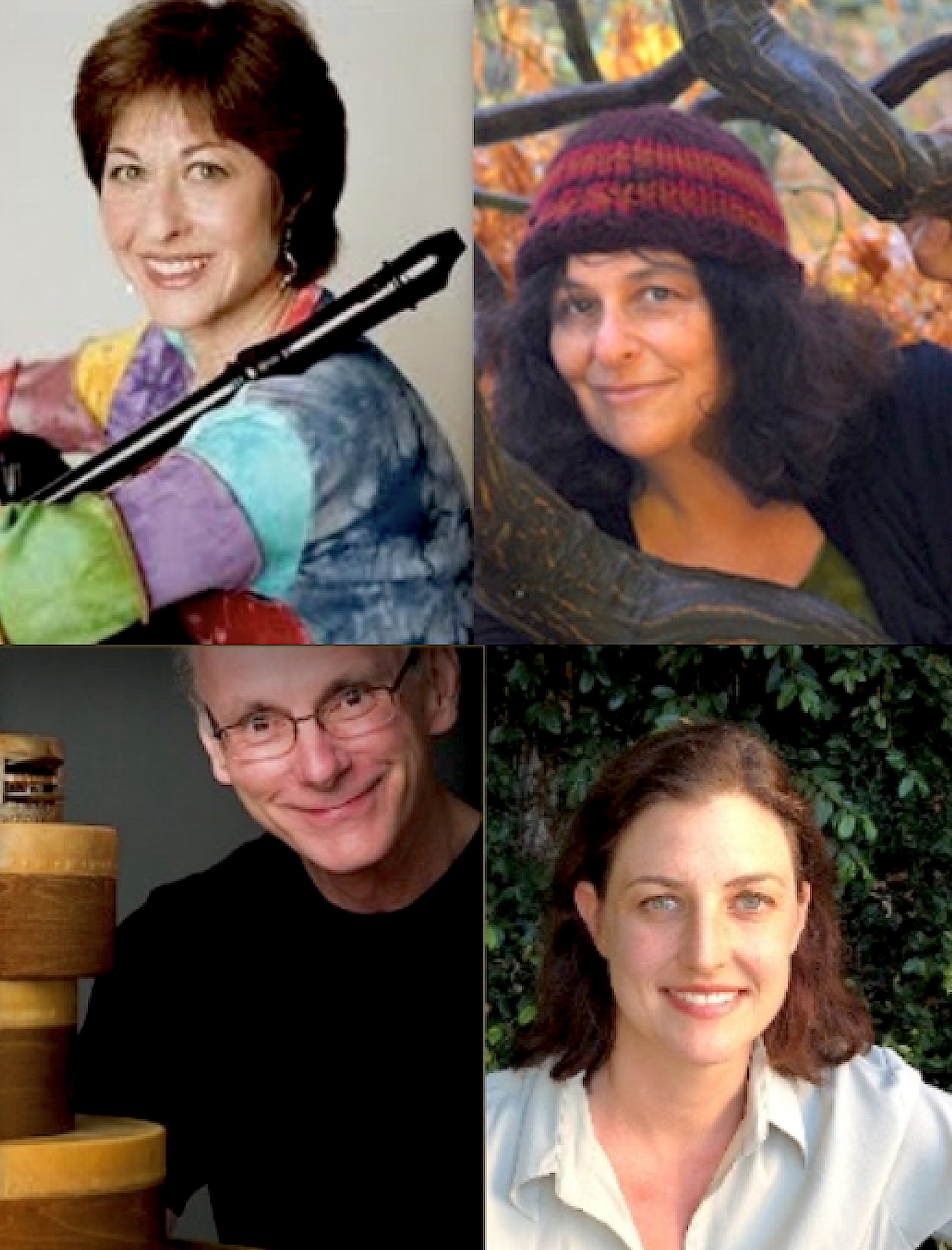 “A La Mode, Au Monde @ El Cerrito, CA” And now for something completely different: a carefully curated blend of Medieval, Renaissance, Balkan, Brazilian, Baroque, traditional, and world music, performed on a panoply of bowed, blown, plucked and hit instruments. Instruments will include, recorder, clarinet, vielle, violin, harp, balalaika, harpsichord, and multifarious percussion instruments! The players – Judith Linsenberg (wind instruments), Shira Kammen (bowed instruments), Katherine Heater (plucked instruments), and Peter Maund (hit instruments) – need no introduction: all four have been regulars of the Bay Area early music scene for decades. However, this event will explore unusual repertoires you won’t have heard before in the same concert.
“A La Mode, Au Monde @ El Cerrito, CA” And now for something completely different: a carefully curated blend of Medieval, Renaissance, Balkan, Brazilian, Baroque, traditional, and world music, performed on a panoply of bowed, blown, plucked and hit instruments. Instruments will include, recorder, clarinet, vielle, violin, harp, balalaika, harpsichord, and multifarious percussion instruments! The players – Judith Linsenberg (wind instruments), Shira Kammen (bowed instruments), Katherine Heater (plucked instruments), and Peter Maund (hit instruments) – need no introduction: all four have been regulars of the Bay Area early music scene for decades. However, this event will explore unusual repertoires you won’t have heard before in the same concert.
6:30 PM
Hillside Swedenborgian Church
1422 Navellier St., El Cerrito
All tickets $20 18 and under admitted free and welcome.
Tickets at the door or reserve in advance online at http://www.brownpapertickets.com/event/3055806
MUSA
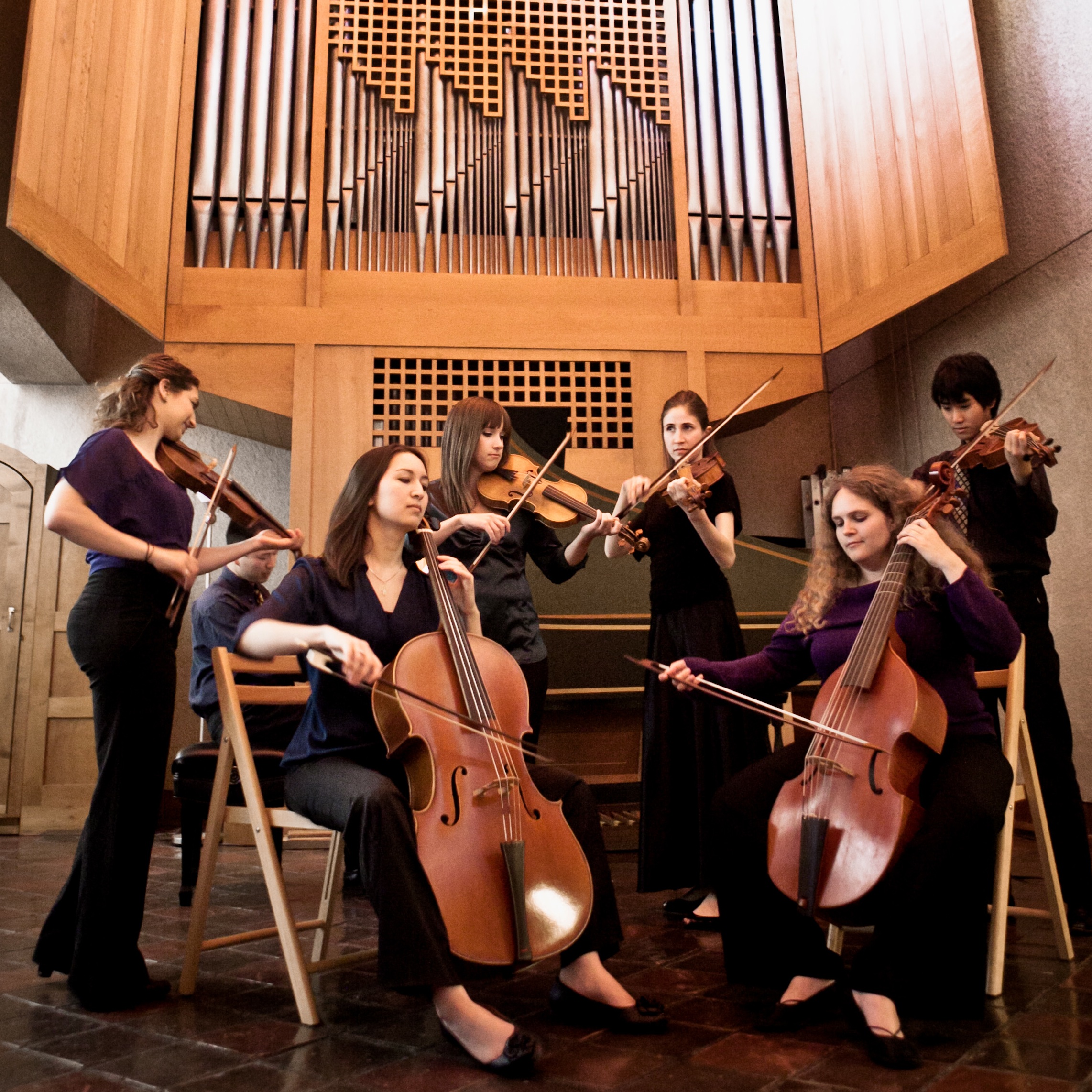 “Smorgasbord Baroque” Cynthia Black and Addi Liu, violins; Gretchen Claassen, cello; and Derek Tam, harpsichord, perform baroque and Classical music from unexpected places. From the imperial Chinese court to the cathedrals of Guatemala, composers drew from European and indigenous sources to create music that dynamically captured the first wave of globalization from the 16th through 18th centuries. Works by Rafael Antonio Castellanos, Francesco Geminiani, Antonio de Salazar, and Georg Philipp Telemann.
“Smorgasbord Baroque” Cynthia Black and Addi Liu, violins; Gretchen Claassen, cello; and Derek Tam, harpsichord, perform baroque and Classical music from unexpected places. From the imperial Chinese court to the cathedrals of Guatemala, composers drew from European and indigenous sources to create music that dynamically captured the first wave of globalization from the 16th through 18th centuries. Works by Rafael Antonio Castellanos, Francesco Geminiani, Antonio de Salazar, and Georg Philipp Telemann.
7 PM
Episcopal Church of the Incarnation
1750 29th Avenue, San Francisco
$20/$15
415-564-2324 info@musasfbaroque.com
Prescott Lectures
 “From Madrigal to Opera: Music and Poetry in 16th-century Italy” Musicologist Dr. John Prescott and literary scholar Dr. Nicholas Jones will present a week-long series of talks on the evolution of the Italian madrigal. The madrigal was to Monteverdi what the symphony was to Haydn and the string quartet was to Beethoven: a form of endless inventiveness and a crucible of experimentation. Inexorably bound to the vital tradition of Petrarchan lyric poetry, the madrigal was where Italian composers developed their craft and pushed the boundaries of music as an expressive and dramatic art. Italian poets wrote new poems to be set to music, and musicians composed new arrangements of these poems, vying with each other for courtly patronage and profit, as literally thousands of madrigals circulated around the courts of Italy and Europe in manuscripts and printed music. Growing increasingly dramatic and expressive through the 16th century, the vocal madrigal evolved from its core as a short piece for five unaccompanied singers, becoming longer and more complicated, adding instruments, and, by the early 17th century, morphing into what we now know as the first operas, such as Claudio Monteverdi’s L’Orfeo. No knowledge of Italian or of madrigal music is expected. Featured composers will include three of the greats from the 16th century: Luca Marenzio, Carlo Gesualdo, and of course Monteverdi, whose operas will conclude the week. Featured poets will include Petrarch, the 14th-century giant whose poetry was still avidly read and imitated in the 16th century; and Giovanni Battista Guarini, Monteverdi’s favorite poet and the source of more than 1,300 vocal madrigals by hundreds of composers. Read more . . .
“From Madrigal to Opera: Music and Poetry in 16th-century Italy” Musicologist Dr. John Prescott and literary scholar Dr. Nicholas Jones will present a week-long series of talks on the evolution of the Italian madrigal. The madrigal was to Monteverdi what the symphony was to Haydn and the string quartet was to Beethoven: a form of endless inventiveness and a crucible of experimentation. Inexorably bound to the vital tradition of Petrarchan lyric poetry, the madrigal was where Italian composers developed their craft and pushed the boundaries of music as an expressive and dramatic art. Italian poets wrote new poems to be set to music, and musicians composed new arrangements of these poems, vying with each other for courtly patronage and profit, as literally thousands of madrigals circulated around the courts of Italy and Europe in manuscripts and printed music. Growing increasingly dramatic and expressive through the 16th century, the vocal madrigal evolved from its core as a short piece for five unaccompanied singers, becoming longer and more complicated, adding instruments, and, by the early 17th century, morphing into what we now know as the first operas, such as Claudio Monteverdi’s L’Orfeo. No knowledge of Italian or of madrigal music is expected. Featured composers will include three of the greats from the 16th century: Luca Marenzio, Carlo Gesualdo, and of course Monteverdi, whose operas will conclude the week. Featured poets will include Petrarch, the 14th-century giant whose poetry was still avidly read and imitated in the 16th century; and Giovanni Battista Guarini, Monteverdi’s favorite poet and the source of more than 1,300 vocal madrigals by hundreds of composers. Read more . . .
Day 5’s lecture will conclude the series with the birth of opera: the baroque transformation of the madrigal.
9:30 AM to Noon
St. Mary Magdalen Church
2005 Berryman St., Berkeley
$30/$25 per session, $125/$110 full week
suzannesiebert@gmail.com
Saturday, February 17
MUSA
 “Smorgasbord Baroque” Cynthia Black and Addi Liu, violins; Gretchen Claassen, cello; and Derek Tam, harpsichord, perform baroque and Classical music from unexpected places. From the imperial Chinese court to the cathedrals of Guatemala, composers drew from European and indigenous sources to create music that dynamically captured the first wave of globalization from the 16th through 18th centuries. Works by Rafael Antonio Castellanos, Francesco Geminiani, Antonio de Salazar, and Georg Philipp Telemann.
“Smorgasbord Baroque” Cynthia Black and Addi Liu, violins; Gretchen Claassen, cello; and Derek Tam, harpsichord, perform baroque and Classical music from unexpected places. From the imperial Chinese court to the cathedrals of Guatemala, composers drew from European and indigenous sources to create music that dynamically captured the first wave of globalization from the 16th through 18th centuries. Works by Rafael Antonio Castellanos, Francesco Geminiani, Antonio de Salazar, and Georg Philipp Telemann.
7:30 PM
Foothill Presbyterian Church
5301 McKee Rd, San Jose
$15
408-258-8133 info@musasfbaroque.com
San Francisco Recorder Society
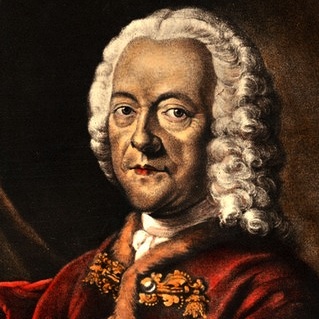 “Bohemian Rhapsody” (Tune in to the Recorder XIV) The San Francisco chapter of the ARS (SFRS) announces its fourteenth annual workshop day for recorders of all sizes, directed by Louise Carslake and Hanneke van Proosdij. This year’s workshop focuses on music of Germany and Eastern Europe. Featured composers include Bach, Grudziądza, Harant, Isaac, Mielczewski, Senfl, Telemann, Vodňanský, and Zelenka. The San Francisco Recorder Society Workshop prides itself in being particularly open to those who may never have attended a music workshop in the past with sessions organized for players of differing skill levels, from low-intermediate to advanced. If you have friends who play but have been hesitant to attend a workshop for fear of not being “ready” please encourage them to join you at this event. There will be lots of friendly players who will gladly sit next to the newcomers and guide them through the music and the day. Refreshments will be provided, but bring your own lunch.
“Bohemian Rhapsody” (Tune in to the Recorder XIV) The San Francisco chapter of the ARS (SFRS) announces its fourteenth annual workshop day for recorders of all sizes, directed by Louise Carslake and Hanneke van Proosdij. This year’s workshop focuses on music of Germany and Eastern Europe. Featured composers include Bach, Grudziądza, Harant, Isaac, Mielczewski, Senfl, Telemann, Vodňanský, and Zelenka. The San Francisco Recorder Society Workshop prides itself in being particularly open to those who may never have attended a music workshop in the past with sessions organized for players of differing skill levels, from low-intermediate to advanced. If you have friends who play but have been hesitant to attend a workshop for fear of not being “ready” please encourage them to join you at this event. There will be lots of friendly players who will gladly sit next to the newcomers and guide them through the music and the day. Refreshments will be provided, but bring your own lunch.
10 AM–4:30 PM
Christ Church Lutheran
1090 Quintara Street (at 20th Ave.), San Francisco
$50, which includes all music. Early registration encouraged.
Download registration form here or visit www.arssanfrancisco.org
Information: Florence Kress, 415-731-9709, or fkress@aol.com; or Greta Hryciw, gr8asf@yahoo.com
Sunday, February 18
Cantata Collective
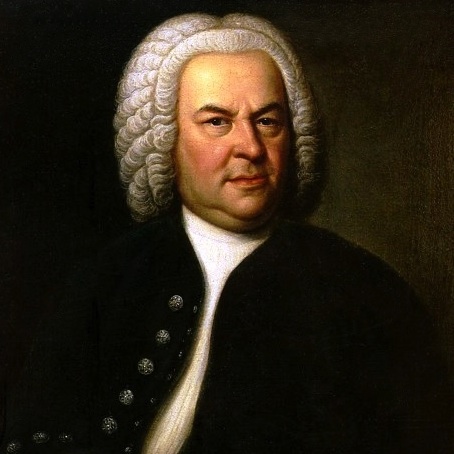 Come hear the final performance of Cantata Collective’s inaugural season on February 18. Featuring the brilliant Boston-based baritone, Paul Max Tipton, in Cantata BWV 56 Ich will den Kreuzstab gerne tragen and one of the most beloved of all Bach’s cantatas, BWV 82 Ich habe genug. Featuring musicians Marc Schachman and Michael Dupree, oboes; Kati Kyme & Lisa Weiss, violins; Anthony Martin, viola; William Skeen, cell; Kristin Zoernig, bass; and Andy Canepa, organ.
Come hear the final performance of Cantata Collective’s inaugural season on February 18. Featuring the brilliant Boston-based baritone, Paul Max Tipton, in Cantata BWV 56 Ich will den Kreuzstab gerne tragen and one of the most beloved of all Bach’s cantatas, BWV 82 Ich habe genug. Featuring musicians Marc Schachman and Michael Dupree, oboes; Kati Kyme & Lisa Weiss, violins; Anthony Martin, viola; William Skeen, cell; Kristin Zoernig, bass; and Andy Canepa, organ.
5 PM
St. Mary Magdalen Parish
2005 Berryman St., Berkeley
FREE, donations accepted.
http://cantatacollective.org/
Ensemble Bizarria
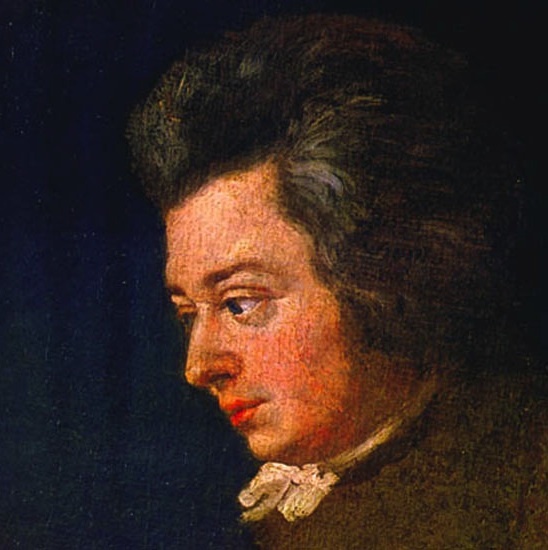 “The Vulnerable Wolfgang Amadeus” Lindsey Strand-Polyak, violin; Evan Hesketh, viola; and Alexa Haynes-Pilon, cello; with Eric J. Wang, reader, examine the complexities and vulnerabilities of one of our greatest and most beloved musical icons through his own words and music. Mozart’s six-movement Divertimento for String Trio in E-Flat Major was written in September 1788 and first performed in Dresden the following April on the composer’s multi-staged journey from Vienna to Berlin. A rare jewel of a piece that elevates the divertimento genre from pleasant cocktail party music to an exploration of the composer’s complexities, it demonstrates the extraordinary style and emotional depth found in the composer’s celebrated string quartets. With the more vulnerable and open texture of a single violin, viola and cello Mozart creates drama, richness and extreme intensity that mirrors the very real challenges which were unfolding in his life at the time. To tell this story Ensemble Bizarria—known for its offbeat and unusual programming—will complement the performance of the Divertimento with dramatic readings from Mozart’s own letters from the same period, curated by 18th-century scholar Dr. Eric J. Wang. Read more . . .
“The Vulnerable Wolfgang Amadeus” Lindsey Strand-Polyak, violin; Evan Hesketh, viola; and Alexa Haynes-Pilon, cello; with Eric J. Wang, reader, examine the complexities and vulnerabilities of one of our greatest and most beloved musical icons through his own words and music. Mozart’s six-movement Divertimento for String Trio in E-Flat Major was written in September 1788 and first performed in Dresden the following April on the composer’s multi-staged journey from Vienna to Berlin. A rare jewel of a piece that elevates the divertimento genre from pleasant cocktail party music to an exploration of the composer’s complexities, it demonstrates the extraordinary style and emotional depth found in the composer’s celebrated string quartets. With the more vulnerable and open texture of a single violin, viola and cello Mozart creates drama, richness and extreme intensity that mirrors the very real challenges which were unfolding in his life at the time. To tell this story Ensemble Bizarria—known for its offbeat and unusual programming—will complement the performance of the Divertimento with dramatic readings from Mozart’s own letters from the same period, curated by 18th-century scholar Dr. Eric J. Wang. Read more . . .
4:30 PM
California Jazz Conservatory
2087 Addison St., Berkeley
$20
Buy Tickets
MUSA
 “Smorgasbord Baroque” Cynthia Black and Addi Liu, violins; Gretchen Claassen, cello; and Derek Tam, harpsichord, perform baroque and Classical music from unexpected places. From the imperial Chinese court to the cathedrals of Guatemala, composers drew from European and indigenous sources to create music that dynamically captured the first wave of globalization from the 16th through 18th centuries. Works by Rafael Antonio Castellanos, Francesco Geminiani, Antonio de Salazar, and Georg Philipp Telemann.
“Smorgasbord Baroque” Cynthia Black and Addi Liu, violins; Gretchen Claassen, cello; and Derek Tam, harpsichord, perform baroque and Classical music from unexpected places. From the imperial Chinese court to the cathedrals of Guatemala, composers drew from European and indigenous sources to create music that dynamically captured the first wave of globalization from the 16th through 18th centuries. Works by Rafael Antonio Castellanos, Francesco Geminiani, Antonio de Salazar, and Georg Philipp Telemann.
4 PM
St. Alban’s Episcopal Church
1501 Washington St., Albany
$20/$18
510-525-1716 info@musasfbaroque.com
Continue Reading next week’s calendar . . .

